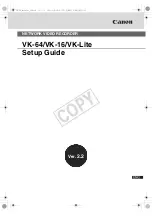
4.4. Technical specification
Tab. 4.6: Technical parameters
Radio parameters
135–154; 154–174; 215–240; 300–320; 320–340; 340–360;
368–400; 400–432; 432–470; 470–512; 928–960 MHz
Frequency bands
6.25 / 12.5 / 25 / 50 kHz
[1]
Channel spacing
±1.0 ppm
Frequency stability
QAM (linear): 16DEQAM, D8PSK, π/4DQPSK, DPSK
Modulation
FSK (exponential): 4CPFSK, 2CPFSK
> 200 kbps@50 kHz; >100 kbps@25 kHz; >50 [email protected] kHz;
>25 kbps@6,25 kHz
[2]
Data speed (up to)
On/Off, ¾ Trellis code with Viterbi soft-decoder
FEC (Forward Error Correction)
Transmitter
QAM: 0.5 - 1.0 - 2.0 W
FSK: 0.1 - 0.2 - 0.5 - 1.0 - 2.0 - 3.0 - 4.0 - 5.0 - 10 W
[3]
RF Output power
(Both Carrier and Modulated)
Continuous
Duty cycle
< 1.5 ms
Rx to Tx Time
> 40 dB
Intermodulation Attenuation
< −36 dBm
Spurious Emissions (Conducted)
< −36 dBm
Radiated Spurious Emissions
< −60 dBc
Adjacent channel power
< −60 dBc
Transient adjacent channel power
Receiver
see details
Sensitivity
50 kHz @ −3 dB BW
Anti-aliasing Selectivity
< 1.5 ms
Tx to Rx Time
20 dBm (100 mW)
Maximum Receiver Input Power
< −57 dBm
Rx Spurious Emissions (Conducted)
< −57 dBm
Radiated Spurious Emissions
see details
Blocking or desensitization
> 70 dB
Spurious response rejection
[1]
50 kHz channel spacing is HW dependent. Units with older version boards are still in production.
50 kHz channel spacing requirement kindly specify in your order.
6.25 kHz channel spacing is not available for RipEX-928.
[2]
This is gross data speed in above table. User data speed varies and depends heavily
on the data structure, optimization effectivity, protocol on Radio channel, signal budgets
and many other parameters of the network. Practical tests are recommended.
[3]
For output power 10 W it is recommended to use input power above 11 VDC.
RipEX-470, RipEX-928 – max. RF Output power 8 W.
55
© RACOM s.r.o. – RipEX Radio modem & Router
Product
Summary of Contents for RipEX
Page 2: ......
















































